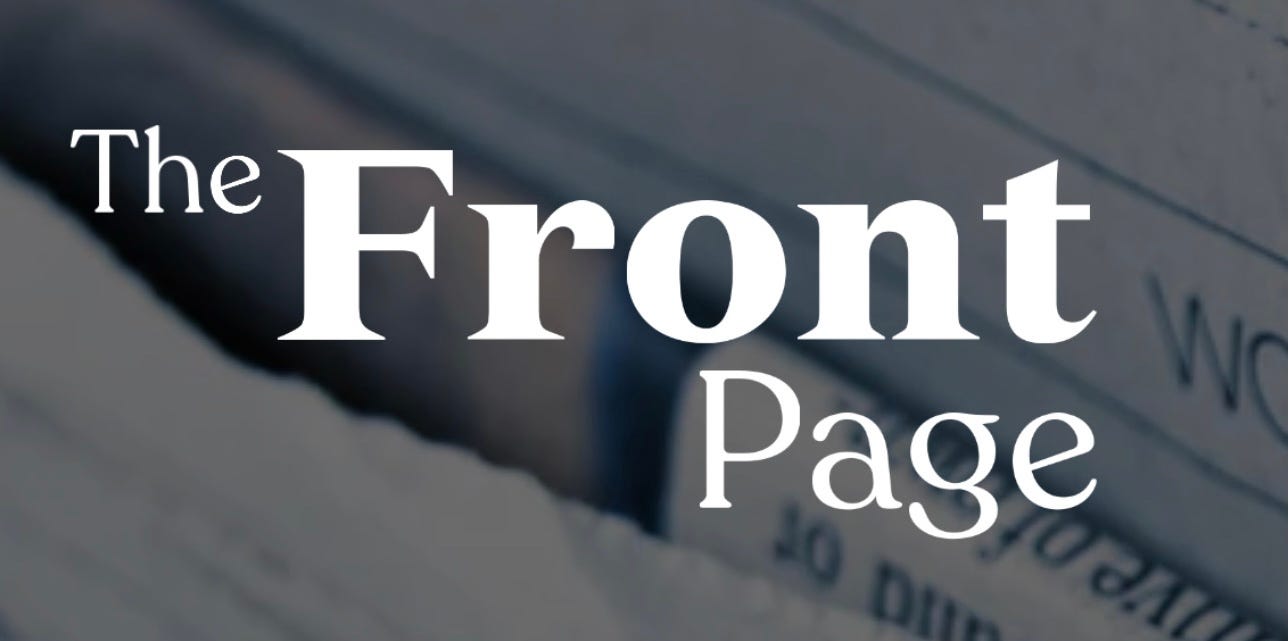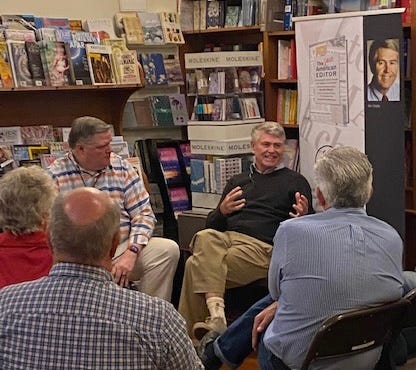Being the conscience of community is OK
NCPR: North Country facing significant teacher shortage
By Ken Tingley
What newspapers have done for generations is to be the conscience of their communities.
I had not learned that lesson when I took over as managing editor of The Post-Star in 1999. I was 42 and still had a lot to learn.
Mark Mahoney became our editorial page editor and started challenging authority, asking difficult questions and sometimes making readers cut-off-in-traffic mad.
But here’s the most important part.
It wasn’t in his name. It was not to further his own political beliefs or agenda. It was in the name of the community which was acting in the name of its readers.
It was to spark debate.
It was inform the citizenry.
It was for the greater good.
Will Doolittle and I followed with columns that provided insights not only into issues, but people and events. Those articles were often the high point of a reader’s day with the rare morsel of good or inspirational news.
In retirement, I realized what a gift it was to the community. I realized that leading the discussion on issues was perhaps our most important responsibility. It’s why Mark Mahoney won the Pulitzer Prize 15 years ago.
I realized the columns Will Doolittle and I wrote provided a historical record of the people and events who shaped our communities.
It’s why I’m so proud of my three books. It’s a community history preserve for posterity.
The value of commentary, of editorials, of adding context and perspective to issues and people’s lives is what I will be talking about this month as I speak around the region.
While reviewing a project for a university publisher this week, I stumbled on a speech from from an old newspaper editor from Iola, Kansas.
“In the early days of this state, most men who entered the newspaper business did so for the sole reasons that they wanted to speak their piece and have their say about what was going on.”
Then Angelo Scott said this, “They had a sense of mission.”
That was the beauty of newspaper work. There was a sense of mission. There was a sense of camaraderie, not so much in reporting the news, but in making a difference in your world.
“And why not?” Angelo Scott continued. “After all, is there any particular point in being an editor if you don’t write editorials? Is there any good reason why a man should run a newspaper which is the very embodiment of freedom of opinion if he has no opinion to express?”
Angelo Scott had my attention.
He was not so much a kindred spirit as the prevailing spirit and belief of another era who was concerned about the future; a spirit that sadly seems to have disappeared.
“I am afraid I know exactly why the editorial pages of Kansas newspapers have grown thinner and more vapid with years. It is because the newspapers themselves have grown fatter and more prosperous,” Scott said. “They have become complex and profitable business operations. Inevitably, they have tempted editors to become business managers and money-makers. It is tending to destroy the one thing a newspaper has that no other medium of news or advertising can offer - a personality which makes it a living, breathing part of the community it serves.”
Those were the words I was looking for and they were spoken by Scott in February 1958 while being recognized with a major state award for a lifetime of journalistic service.
Angelo Scott would be appalled by corporate newspaper chains and hedge-fund operated conglomerates of today who have dismissed opinion writing because it might affect the bottom line.
Scott argued his beloved newspapers were becoming cookie-cutter copies of each other. Except in one way - their editorial pages.
“Here is where a newspaper has its one chance to become different,” Scott said in closing his speech. “Here is where a newspaper may become gay or sad, frivolous or serious, inquiring or cynical, a blazing crusader or a quiet philosopher. Indeed, it may become all of these things in the same paper in the same week as the mood of the editor changes. But in any event it will become personal if it reflects the thinking of a person who is known to its readers, who is hometown flesh and blood, who sits at a desk in the hometown office and who may be slapped on the back if you like what he says or cussed out over the phone if you don’t. It will have impact, force and vitality. It may even have influence.”
Good citizens want more than just the facts. They want to understand the world around them.
We need more of that.
Teacher shortage
North Country Public Radio did a great article this week about the shortage of teachers throughout the North Country.
Administrators once feared getting way too many resumes for open positions, now they get very few. It has led to gaps in programs and eventually could lead to all of us paying higher school taxes.
Check it out.
January events
My local book tour begins in earnest this week with an appearance at noon at the Queensbury Senior Center where I will be talking about the value of commentary and editorials in community debate.
Here is a brief synopsis of where I will be speaking:
January 3 - Queensbury Senior Center, Noon.
January 9 - Senior Center of Kingsbury and Ford Edward, 11 a.m.
January 17 - Chapman Museum, Glens Falls, 7 p.m.
January 25 - Moreau Community Center, 1 p.m.
January 29 - SUNY Adirondack Writers Series, 12:15 p.m.
February 8 - Glens Falls Senior Center, 1 p.m.






Don’t take the bait…internet trolls take up too much oxygen in whatever space they invade.
just read a comment from a "Nordic Pagan Soldier" which display how "opinions" by ignorant racist, and anti-semitic people--quoting Ford, using profanity and hate--is so common in social media and dangerous to democracy, intelligence, and reflective thought..